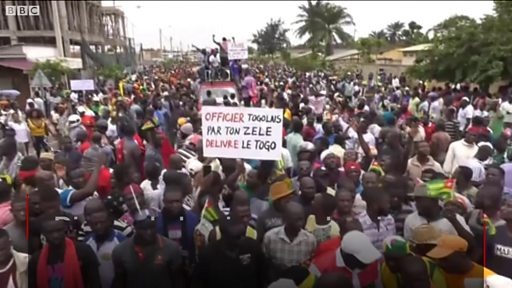Some of Togo’s opposition parties and civil society groups on Saturday renewed their calls for widespread popular protests a day after lawmakers approved constitutional changes likely to extend the 19-year rule of President Faure Gnassingbe.
In a statement, the Dynamique Pour la Majorité du Peuple (DMP) opposition coalition and other signatories said the changes, relating to presidential term limits and how presidents are elected, were a political manoeuvre to allow Gnassingbe to extend his tenure for life.
“What happened at the National Assembly yesterday is a coup d’etat,” they said in the statement that reiterated calls for the population to mobilise against the changes.
“Large-scale action will be organised over the next few days to say ‘no’ to this constitution,” they said.
In Friday’s vote, lawmakers unanimously approved an amended charter under which the president will no longer be elected by universal suffrage, but by members of parliament.
The amendments also introduce a parliamentary system of government and shortened presidential terms to four years from five, with a two-term limit.
The changes do not take into account time already spent in office, so could enable Gnassingbe to stay in power until 2033 if he is re-elected in 2025, a highly likely scenario as his party controls the parliament in Togo, where Gnassingbe’s father and predecessor Gnassingbe Eyadema seized power via a coup in 1967.
Several other African countries, including Central African Republic, Rwanda, Congo Republic, Ivory Coast and Guinea, have pushed through constitutional and other legal changes in recent years allowing presidents to extend their terms in office.
The West and Central African region has also witnessed eight military coups in the past three years.
In Togo, violent police crackdowns on political demonstrations have been routine under Gnassingbe – reelected in a 2020 landslide disputed by the opposition.- as they were during his father’s long rule.
The new constitution also creates a new role, president of the council of ministers, with extensive authority to manage government affairs.









